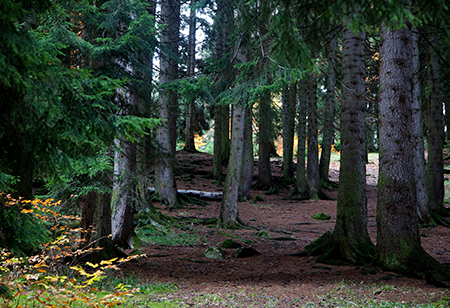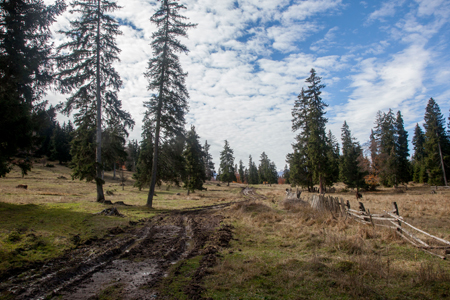€9m EU-funded programme supports forest restoration in Georgia

About 100ha of degraded forest from intensive cattle grazing will be restored in Georgia’s western Adjara region through the support of a European Union (EU)-funded forest sustainable development initiative.
Overgrazing has been revealed as the major cause of forest degradation in Adjara and in many other parts of Georgia, so to combat this, several local and international agencies will work together to stop cattle overeating the precious greenery.
In this sense, WWF-Caucasus and the Forestry Agency of Ajara will purchase wooden poles, barbed wire, forest restoration tools and more, and offer them to the Forestry Agency of Ajara (FAA) to contribute to fencing of about 100 ha of degraded forest to protect it from cattle grazing.
The fencing work will be conducted by the FAA in late July and August 2015.
Work will be undertaken through the EU-funded Forest Law Enforcement and Governance Programme (FLEG II); a €9 million initiative that supported the development of sound and sustainable forest management practices, including the prevention of illegal forestry activities.
Khulo Forest Administration director Renar Bolkvadze emphasized the socio-economic interests of locals would be considered while work was being carried out. This also included employment of community members in the forest restoration and fencing and protection works.
As well as the overgrazing problem, the team would also tackle the vigorous growth of rhododendron in the southern part of the potential forest restoration site.
Bolkvadze said all open areas within the forest canopy were occupied by dense rhododendron cover. He said natural regeneration of forest was not possible in these areas because the dense cover of rhododendron would not allow tree seedlings to reach the soil and germinate.
Surveys will be conducted in the next few weeks to find solutions to the problems and a way to avoid blocking the cattle movement corridor while protecting the forest at the same time.
The €9 million ENPI FLEG II programme aimed to deepen reforms in forestry policy, and legal and administrative matters in the sector while carrying out pilot projects, and addressing forest fire and climate issues. It builds upon the achievements of its predecessor, ENPI FLEG I programme, which ran from 2008 to 2011 in Georgia, Armenia, Azerbaijan, Belarus, Moldova, Russia and Ukraine.
 Tweet
Tweet  Share
Share






